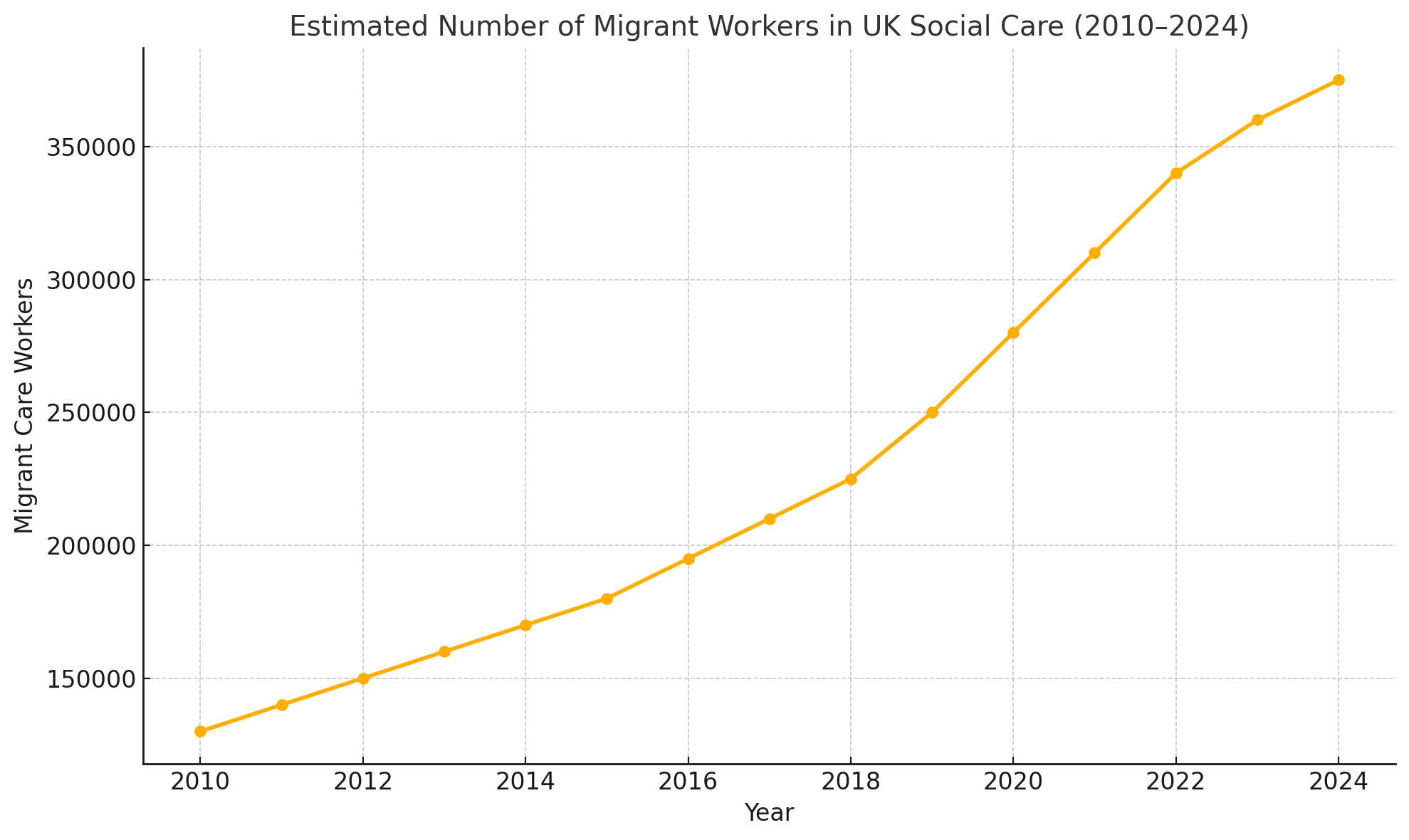Why Restricting Visas Threatens Staffing Stability
The UK care sector is facing an undeniable crisis, not just in funding, but in workforce numbers, morale, and retention. In July 2025, the government confirmed it will end the social care visa route for overseas recruits. On paper, it’s a policy designed to encourage domestic hiring. In reality, it risks undermining the very structure that’s keeping many care homes and homecare services running.
Read the original editorial in The Guardian
What’s Changing and When
From 22 July 2025, new overseas care staff can no longer apply for Skilled Worker visas under the adult social care sponsorship route. Existing visa holders can stay until 2028, but no new foreign care workers will be added to the system after this cut-off.
This policy shift is part of a broader crackdown on so-called “low-skilled” migration. Yet many experts say it fails to recognise the complexity, compassion, and commitment required in frontline care work.
The Role of Migrant Workers in UK Social Care
Migrant care workers are not a temporary patch—they’re the backbone. In 2024 alone:
- Over 375,000 non-EU care workers were employed in UK adult social care.
- 70% of growth in the sector came from overseas staff.
- UK-born care worker numbers declined.

This means fewer people from the UK are joining the sector—despite efforts to promote it—and overseas recruits have been essential in maintaining care delivery.
What This Means for Care Providers
Care providers, like CareStaff24, now face several urgent challenges:
- Staffing gaps: Replacing thousands of overseas carers will take time, training, and investment.
- Increased admin pressure: Providers must show they’ve tried recruiting UK workers before hiring externally.
- Retention pressure: Without pay reform and flexible contracts, recruiting UK-born staff won’t stick.
Ultimately, the risk is that already-stretched services will start to falter—not from a lack of care, but a lack of carers.

Pay Reform Is Still Missing
Supporters of the visa restriction argue it will push the sector toward offering better pay to UK workers. But this assumes funding is available—when in reality:
- Most care providers rely on local authority budgets.
- Councils are already struggling to meet demand.
- A national care service is still years away (expected around 2028).
Until the funding problem is solved, pay reform will remain a promise rather than a policy.
Are We Missing the Bigger Picture?
The Guardian editorial put it bluntly: “Labour’s visa crackdown is a cynical move.” It shifts the blame to immigration while avoiding the real issue—long-term underfunding and a failure to professionalise the care sector.
If we truly value care work, we need to stop calling it “low-skilled,” and instead start building a system where both migrant and UK-born carers can thrive, grow, and be paid fairly.
What We Can Do Now
At CareStaff24, we believe in action. While policy debates continue, we’re committed to:
- Supporting our existing international staff with fair contracts and ongoing training.
- Providing flexible opportunities to retired carers and returners to the workforce.
- Working with local communities across East Sussex to recruit those who want to make a difference.
Together, we can protect the integrity of our care system—and the people it supports.
Want to Join the Team?
We’d love to hear from you.
Are you a carer, retired health worker, or someone new to the sector who wants to help?
View our job opportunities here.

Your care, your future! We’re here to support both.
At CareStaff24, we’re proud to connect compassionate professionals with meaningful opportunities across East Sussex and beyond. Each job listing reflects our commitment to safer staffing, responsive recruitment, and personalised support.
All applicants are thoroughly vetted, supported through every step, and matched with roles suited to their skills, preferences, and availability. If you have questions about a role or need help applying, our friendly team is just a message away.
Let’s find the right opportunity, together.

